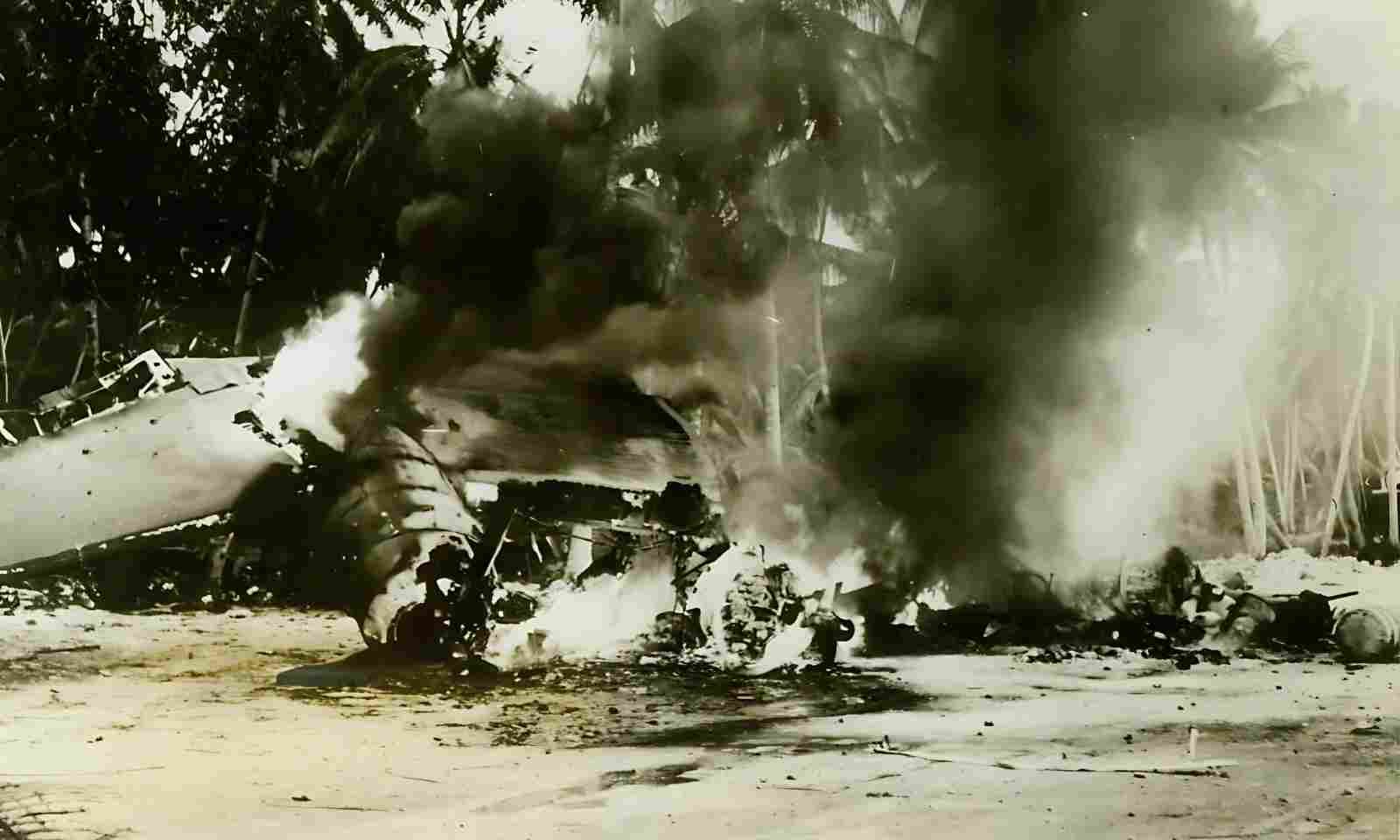

Tuvaluans mark the 82nd anniversary of the bombing of Funafuti with fatele dances. Photo/Simon Kofe/Facebook
Photo/Simon Kofe/Facebook
Te Aso o te Paula: Tuvalu remembers resilience and the pursuit of peace
On the eve of ANZAC Day, the Pacific island nation commemorates the 82nd anniversary of the bombing of Funafuti and calls for global peace.


US funding cuts threaten to 'dry up' future of Pacific scientists - expert


Immigration reassesses toddler's declined visa request as Children's Commissioner steps in

Inked across lands: How Pacific tattoo art is thriving in Germany

US funding cuts threaten to 'dry up' future of Pacific scientists - expert


Immigration reassesses toddler's declined visa request as Children's Commissioner steps in
Tuvalu commemorates Te Aso o te Paula this week, marking the 82nd anniversary of the bombing of Funafuti by the Empire of Japan.
Te Aso o te Paula, which means "the day of the bomb", is remembered by the Tuvaluan community as both 'a day of loss' and 'a day of salvation'.
On the eve of ANZAC Day, the Tuvaluan government emphasises that it is also a time for remembrance, resilience, and renewed calls for peace.
The United States was constructing an airfield on Funafuti as part of its strategy to counter Japan's growing presence in the Pacific. Japanese planes, likely from Kiribati or Nauru, launched the raids on Funafuti.
On 23 April 1943, Japanese bombers targeted the small atoll of Funafuti. As the attack approached, hundreds of locals sought refuge inside a church.
Corporal Fonnie Black Ladd, a US Marine stationed on the island, recognised the imminent danger and took courageous action to save lives.
“Corporal Ladd realised the church would likely be targeted," Tuvalu’s Minister for Transport, Energy, Communication and Innovation, Simon Kofe, wrote on social media.
"He called out for people to leave, but when they didn’t respond, he fired his weapon to force an evacuation. Moments later, the church was bombed and destroyed. His actions saved many lives."

On 23 April 1943, the Empire of Japan bombed American targets in the Pacific, including US airfield in Funafuti, Tuvalu. Photo/USWarArchive
According to the US military, over a dozen people were killed in the attacks, mostly American soldiers and an elderly Tuvaluan man named Esau Sepetaina, who was fatally injured by shrapnel.
Eight Japanese aeroplanes were lost during the Funafuti raids.
"During the night of April 21-22, the Funafuti Airfield was bombed twice by Japanese planes. Two B-24s are destroyed and five others damaged.

Tuvaluans recount the experiences of their people during the war. Photo/Simon Kofe/Facebook
"On April 23, 1943, Japanese Nells from 755 Kōkūtai (755 Air Group) bomb Funafuti Airfield. During the raid, 680 islanders took refuge in the concrete-walled, pandanus-thatched church.
"US Army Corporal B. F. Ladd persuaded them to get out of there and into dugouts. Ten minutes later, a large bomb destroyed the building. Only one islander, Esau Sepetaina, was killed in the air raid."
Watch the Funafuti community in Auckland as they prepare to commemorate Te Aso o te Paula - The Day of the Bomb - in 2023 on Tagata Pasifika.
Corporal Ladd’s bravery earned him the Silver Star Medal, one of the highest military honours awarded by the United States.
In Tuvalu, the day is commemorated annually with memorial services, storytelling, and fatele dances, which preserve the memories of the war through Tuvaluan traditions and oral history.
Tuvaluans also remember this day as a "day of salvation" because while there were casualties, the bombing did not cause the widespread destruction that could have been expected, considering the Japanese were surprised to find an airfield there, according to reports.
Kofe says the attacks also reminded them of the war and its impact on their lives.

Tuvaluans mark Te Aso o te Paula with fatele dances. Photo/Simon Kofe/Facebook
“Every year, we remember this day - Te Aso o te Paula - through memorial services, stories, and fatele dances that recount the experiences of our people during the war," he says.
"It’s a powerful reminder that even the most remote and peaceful places like Tuvalu are not immune to the impacts of global conflict.”
Reflecting on current global challenges, Kofe connects the past to present geopolitical tensions.
“Looking at the state of the world today, with rising tensions and growing uncertainty, this day reminds us that war affects all of us," he says.

Simon Kofe says war is a "powerful reminder that even the most remote and peaceful places like Tuvalu are not immune to the impacts of global conflict". Photo/SBS Dateline
"It reminds us why we must keep working for peace, justice and the protection of all people - no matter how far away they may seem."
As Tuvaluans honour the past, Kofe says they send a message to the world: peace is a global goal and a shared responsibility.